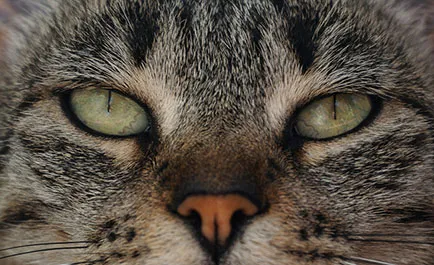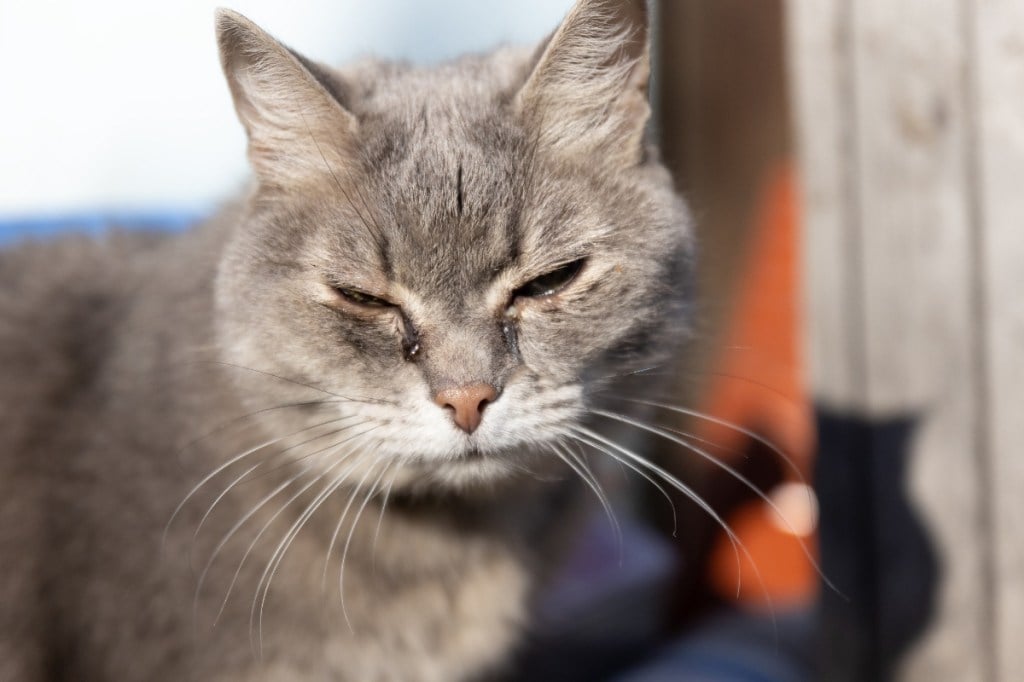Table of Contents
Cats have earned a reputation for being independent creatures with an affinity for world domination. Regardless of their plans to take over the world, we love cats and love having them as pets.
Advances in veterinary care have helped improve cats’ health and well-being, allowing them to live long lives—perhaps as long as 20 years. With longer lives, though, comes age-related diseases.
Knowing the common health issues in senior cats can help you take a proactive role in keeping your cat as healthy and happy as possible in their golden years. Let’s get started.
Common Health Issues
Chronic Kidney Disease (CKD)
The kidneys work hard at removing toxins from the blood and eliminating them from the body. As cats age, their kidneys can stop working efficiently, leading to a buildup of toxins. Senior cats with CKD have symptoms such as increased urination, weight loss, and reduced appetite, but these symptoms may not appear until the disease is advanced.
CKD is not curable but can be managed with medications and a special kidney diet that doesn’t make the kidneys work so hard.
Heart Disease
Senior cats can develop different types of heart disease, one of which is cardiomyopathy (disease of the heart muscle). A diseased heart cannot pump blood very efficiently, leading to generally poor circulation and a possible buildup of fluid in the belly. Heart disease eventually leads to congestive heart failure, which is managed with a complex mix of medications and other therapies.
Dental Disease
Dental disease in cats typically begins at 2 or 3 years of age. Poor dental health in senior cats can lead to such symptoms as bad breath, loose teeth, swollen gums, and difficulty eating. If left untreated, dental disease can drastically decrease a senior cat’s quality of life.
Fortunately, dental disease can be managed through regular at-home toothbrushing and professional dental cleanings. If your cat doesn’t want its teeth brushed, discuss dental hygiene alternatives, like dental treats, with your veterinarian.
Advanced dental disease may require surgical tooth removal and medications to reduce pain and inflammation.
Arthritis
In older cats, the soft joint cushioning starts breaking down, leading to painful arthritis. Arthritis makes a cat reluctant to play, jump, and climb the stairs. Cats with arthritis also have difficulty getting into or out of their litterboxes, making accidents more likely.
Arthritis can be managed with pain medications and environmental changes like a low-lipped litterbox or orthopedic bed. If your cat is particularly open-minded, you could also manage the joint pain with massages or acupuncture.
Hyperthyroidism
The thyroid glands are located on the sides of a cat’s trachea. They produce thyroid hormones and help regulate a cat’s metabolism. In senior cats, the thyroid glands can produce excess thyroid hormone, leading to hyperthyroidism. Hyperthyroidism symptoms include persistent hunger, excessive thirst, and hyperactivity. This disease is managed with medication.
Diabetes
Obesity and a sedentary lifestyle increase a senior cat’s risk of developing type 2 diabetes. Vomiting, weight loss, and weakness are signs of diabetes in cats but are also present with many other diseases. A veterinarian will measure blood glucose levels and look for glucose in the urine to diagnose the condition.
If diabetes is detected early in cats, aggressive treatment can put the disease into remission, eliminating the need for insulin. If diabetes is already advanced, lifelong insulin administration will be necessary to regulate blood glucose levels.
Cognitive Dysfunction
As a cat gets older, its brain tissue might start degenerating, leading to such behavioral changes as disorientation, constant meowing, and aimless wandering. Cognitive dysfunction in cats can be managed with medications and supplements to slow the degeneration.
Cancer
Senior cats can be affected by various cancer types, including lymphoma, squamous cell carcinoma, and leukemia. Cancer symptoms and treatment vary widely according to the cancer type.
What You Can Do
With proper care and attention, your cat can live a great life well into their senior years. Make sure that your cat has twice-yearly veterinary wellness visits once they reach 8 years old. During these visits, your veterinarian will perform a thorough physical exam, run diagnostic tests (blood work, fecal exam, urinalysis), and, if necessary, administer vaccines. These visits help your veterinarian evaluate your cat’s health and detect diseases early.
Other Tips for Caring for Your Senior Cat:
Observe your cat’s behavior and appearance, taking note of any changes (e.g., appetite, urination frequency, general mood).
- Feed your cat a diet that best meets their nutritional needs. Your veterinarian can help you choose the right diet.
- Make your home environment comfortable for your cat, such as by placing food and water bowls next to your cat’s bed.
- Keep your cat mentally engaged with food puzzle toys and interactive games.
Bringing it Together
Aging is not a disease. Senior cats don’t have to suffer from poor health simply because they’ve gotten up in years. Do your best to care for your cat and work closely with your veterinarian to give your senior cat good health and a satisfying quality of life.
The content is not intended to be a substitute for professional veterinarian advice, diagnosis, or treatment. Always seek the advice of your veterinarian or other qualified health provider with any questions you may have regarding a medical diagnosis, condition, or treatment options.






